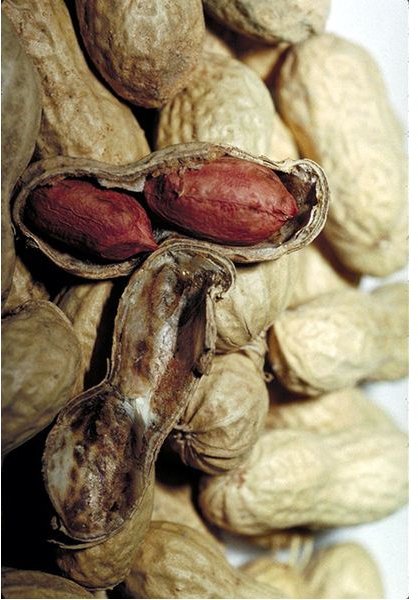Peanuts: Health Benefits, Storage & Consumption Tips for Peanuts
Also known as groundnut, earthnut or goober pea, peanut belongs to the legume family. Raw peanuts comprises of a brown shell with two peanuts inside. Each oval-shaped peanut has a thin brown covering. Raw peanuts generally have a slight salty taste, which becomes more distinct after boiling them. They were first cultivated in South America about 7,600 years ago and later introduced in African countries by the Spanish and Portuguese. Later it was introduced to North American countries during the slave trade era.
The important uses and health benefits of peanuts was recognized in the 19th century U.S., thanks to George Washington Carver, an American scientist and botanist. He not only encouraged peanut cultivation among farmers, but also recognized their various uses. Today, peanuts form an important part in American snacks, from a kid’s favorite sandwich filling to a delicious candy.
Health Benefits of Peanuts
Rich in manganese, copper, folate and niacin, peanuts are an excellent source of monounsaturated fats. Packed with a nutritional punch of proteins and minerals, the health benefits of peanuts are aplenty.
-
Rich in niacin, peanuts may help to protect against Alzheimer’s disease. According to a study conducted by the Chicago Health and Aging Project, consuming niacin-rich foods such as peanuts can lower the chances of developing Alzheimer’s disease by as much as 70 percent. Eating quarter cup of raw peanuts everyday can certainly ensure niacin intake.
-
Eating peanuts can also boost your antioxidant intake. A recent research found these delicious legumes rich in antioxidant polyphenols. A research conducted by the scientists at the University of Florida asserted that the level of antioxidant polyphenols in the peanut is higher than apple or carrot.
-
Peanuts contain oleic acid, which is present in olive oil as well. Oleic acid can raise HDLs (High density lipoproteins) and lower the bad cholesterol levels.
-
The peanut is a very good source of resveratrol, a phenolic antioxidant well-known for its anti-cancer and anti-aging effects. The chemical also reduces the chances of heart attacks and strokes. A Nurses’ Health Study conducted on over 80,000 women revealed that consuming cashew nuts, almonds and legumes like peanuts can reduce the risk of heart disease.
-
One of the most important health benefits of peanuts is the anti-cancer effects. Research has proved that peanuts are loaded with important nutrients such as phytic acid, phytosterols, folic acid and resveratrol. These nutrients may have anti-cancer benefits. According to a 10 year research in Taiwan, peanuts have the potential to inhibit colon cancer among men and women. The study suggested that eating peanuts twice a week lowered the risk of colon cancer by 27 percent among males and 58 percent among females.
Besides raw peanuts, there are any health benefits of boiled peanuts. Boiled peanuts retain antioxidants minerals and proteins present in raw state. However, it is recommended not to boil peanuts too much as they may lose key nutrients. One major drawback of boiled peanuts is the sodium content. This is mainly because of added salt. Peanuts already have salty taste so there’s no need of any extra salt. The best way is to boil without any soil at home instead of buying boiled peanuts from stores.
(Image Credit: Wikipedia)
Peanuts Consumption, Storage and Selection Tips
-
While there are many health benefits of peanuts, there are few individual concerns associated with. One of the most important concerns is food allergy. Before consuming peanuts make sure you are not allergic to them. The US Centers of Disease Control lists peanuts among top eight allergic food types. Other foods include soy foods, cow’s milk and tree nuts. If you are allergic, then seek the help of a healthcare provider.
-
When purchasing unshelled peanuts (whole peanuts), make sure they are fresh and not too dried. If possible, inspect a peanut to see if it has any cracks or is insect-infected.
-
Shelled peanuts are usually available in transparent containers. While purchasing, make sure, the container is sealed and does not contain any moisture.
-
Whole peanuts should generally be eaten immediately. However, you can shell and store them inside tight containers and then put them inside freezer. Shelled peanuts should not be exposed to humidity or heat as they can get spoilt or decayed.
References
https://www.whfoods.com/genpage.php?tname=foodspice&dbid=101
